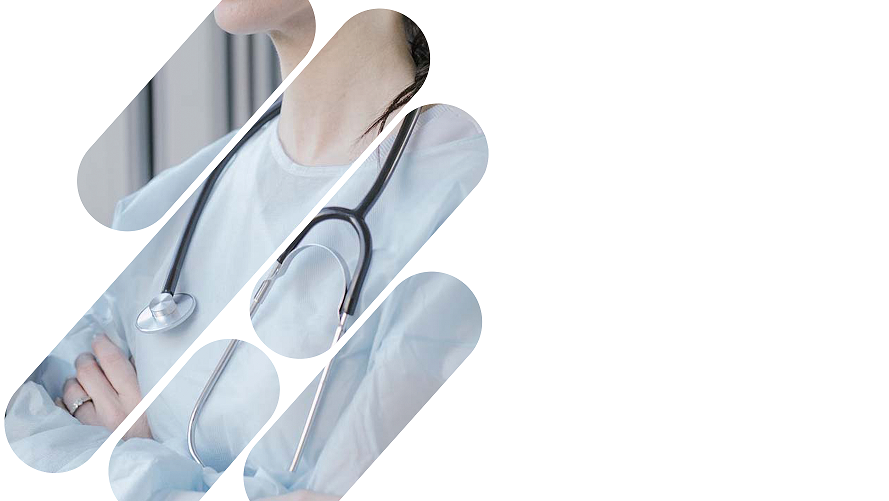 We often like to follow the trends of our American friends across the pond. They’re huge on shopping malls with everything you need under one roof, and that trend is somewhat catching on over here. I live in Derby and a few years ago, what was the Eagle Shopping Centre was transformed in to one huge Westfield shopping centre with pretty much everything all under one roof!
We often like to follow the trends of our American friends across the pond. They’re huge on shopping malls with everything you need under one roof, and that trend is somewhat catching on over here. I live in Derby and a few years ago, what was the Eagle Shopping Centre was transformed in to one huge Westfield shopping centre with pretty much everything all under one roof!
Personally, I like it – because in winter you don’t have to worry about being cold when shopping! But with such a huge building with a variety of outlets, and with the place being packed with shoppers rushing around, accidents can easily occur. A child drops his ice cream, and someone slips on the remains. A gherkin drops out of a burger, and an innocent old age pensioner ends up slipping on it. Because accidents can easily occur, those in charge of shopping centres need to be on the ball for keeping people safe.
If you have slipped or tripped in a shopping centre due to a hazard that was not cleared, cordoned off, you may have a claim under the Occupiers Liability Act. Under this important piece of legislation, whoever is in charge of the centre must take all reasonable steps to prevent an accident from occurring. Commonly, these are:
Read More

 I’m pretty certain that there is no one on this Earth that relishes the thought of going to A+E. I’ve been a few of times, and it’s the same old story – they’re rushed off their feet, it takes hours just to be seen by a nurse, let alone a doctor, and they’ll probably going to discharge you and tell you that you’ll be absolutely fine and its nothing to worry about. Four days later you’re lying on an operating table because that “minor muscular injury” they convinced you that you’d be recovered in no time from is a complex fracture!
I’m pretty certain that there is no one on this Earth that relishes the thought of going to A+E. I’ve been a few of times, and it’s the same old story – they’re rushed off their feet, it takes hours just to be seen by a nurse, let alone a doctor, and they’ll probably going to discharge you and tell you that you’ll be absolutely fine and its nothing to worry about. Four days later you’re lying on an operating table because that “minor muscular injury” they convinced you that you’d be recovered in no time from is a complex fracture! As Britons, we love to panic sometimes don’t we? We’re the type of society that rushes to our GP when we are feeling a little tense or under the weather. My understanding is that the NHS is encouraging people to make use of help lines and walk in centres. And let’s not even start on getting an appointment with your GP – if you’re lucky enough to get one before a full lunar cycle, you have a very well organised (or quiet) General Practitioner.
As Britons, we love to panic sometimes don’t we? We’re the type of society that rushes to our GP when we are feeling a little tense or under the weather. My understanding is that the NHS is encouraging people to make use of help lines and walk in centres. And let’s not even start on getting an appointment with your GP – if you’re lucky enough to get one before a full lunar cycle, you have a very well organised (or quiet) General Practitioner. Package holidays are fairly common nowadays. Who wouldn’t want to just pay a single fee for an all inclusive stress free holiday, where you don’t have to worry about booking the hotel, flights, transport, and other things separately. It saves a lot of time.
Package holidays are fairly common nowadays. Who wouldn’t want to just pay a single fee for an all inclusive stress free holiday, where you don’t have to worry about booking the hotel, flights, transport, and other things separately. It saves a lot of time.  We often like to follow the trends of our American friends across the pond. They’re huge on shopping malls with everything you need under one roof, and that trend is somewhat catching on over here. I live in Derby and a few years ago, what was the Eagle Shopping Centre was transformed in to one huge Westfield shopping centre with pretty much everything all under one roof!
We often like to follow the trends of our American friends across the pond. They’re huge on shopping malls with everything you need under one roof, and that trend is somewhat catching on over here. I live in Derby and a few years ago, what was the Eagle Shopping Centre was transformed in to one huge Westfield shopping centre with pretty much everything all under one roof! There are a lot of rules and regulations that employers must abide by when it comes to preventing accidents at work. It can depend on the type of industry of course – you’d expect less accidents in an office than on a construction site – but all employers are equally responsible for complying with the law.
There are a lot of rules and regulations that employers must abide by when it comes to preventing accidents at work. It can depend on the type of industry of course – you’d expect less accidents in an office than on a construction site – but all employers are equally responsible for complying with the law. This is a very common scenario! With the insane amount of potholes and defects that have been caused by the cold winter we have been through, I think it’s safe to say the highways authorities are facing huge amounts of work (and so maybe behind!) when it comes to rectifying defects on public ground. In this article, I’m going to focus on raised paving as oppose to pothole defects.
This is a very common scenario! With the insane amount of potholes and defects that have been caused by the cold winter we have been through, I think it’s safe to say the highways authorities are facing huge amounts of work (and so maybe behind!) when it comes to rectifying defects on public ground. In this article, I’m going to focus on raised paving as oppose to pothole defects. Generally speaking, someone or some company is responsible for a pipe (I would have thought!). If it’s manmade, it’s been fitted by someone and is someone’s responsibility! So a pipe shouldn’t be allowed to leak and cause a potential hazard. Rather obviously if the pipe is carrying water or any other liquid, a slipping hazard can result.
Generally speaking, someone or some company is responsible for a pipe (I would have thought!). If it’s manmade, it’s been fitted by someone and is someone’s responsibility! So a pipe shouldn’t be allowed to leak and cause a potential hazard. Rather obviously if the pipe is carrying water or any other liquid, a slipping hazard can result. When you’re going about your everyday business, you rarely expect to end up on the floor after tripping over a hazard on the ground! But it does happen. For this article, I’m going to quickly discuss
When you’re going about your everyday business, you rarely expect to end up on the floor after tripping over a hazard on the ground! But it does happen. For this article, I’m going to quickly discuss  We live in an age where beauty is everything. We’re all concerned about how we look, and most people in modern society today follow the latest trends, fashions, and are out to look as good as they can. It’s no surprise therefore that more and more people are turning to cosmetic surgery to achieve this. It’s a common thing nowadays for people to nip down to their local clinic for a bit of Botox or a tummy tuck.
We live in an age where beauty is everything. We’re all concerned about how we look, and most people in modern society today follow the latest trends, fashions, and are out to look as good as they can. It’s no surprise therefore that more and more people are turning to cosmetic surgery to achieve this. It’s a common thing nowadays for people to nip down to their local clinic for a bit of Botox or a tummy tuck. Here we go again! Its snow joke out there; snowmaggeddon has returned; there’s snow way it’s as bad as this; and all the usual jokes and trends on twitter about the weather we’re having at the moment. I remember when I was a kid I was praying for snow to get me off school so I could spend all day sledging and snowball fighting. Now, as a commuter, I hate the stuff!
Here we go again! Its snow joke out there; snowmaggeddon has returned; there’s snow way it’s as bad as this; and all the usual jokes and trends on twitter about the weather we’re having at the moment. I remember when I was a kid I was praying for snow to get me off school so I could spend all day sledging and snowball fighting. Now, as a commuter, I hate the stuff!









